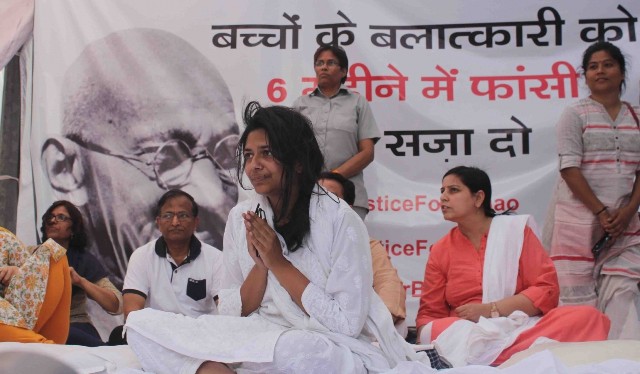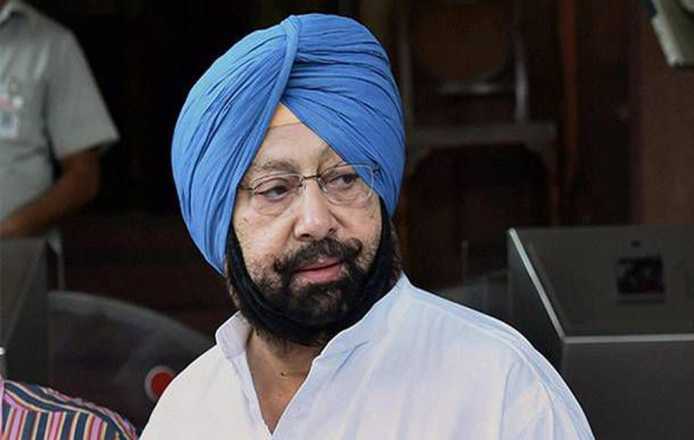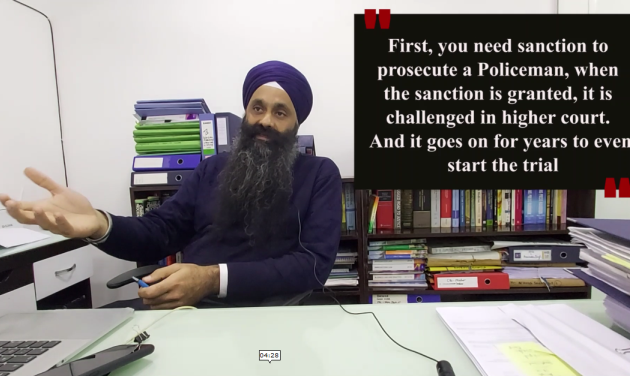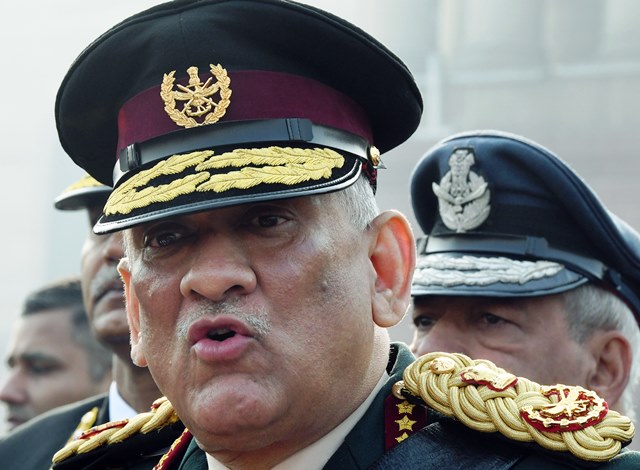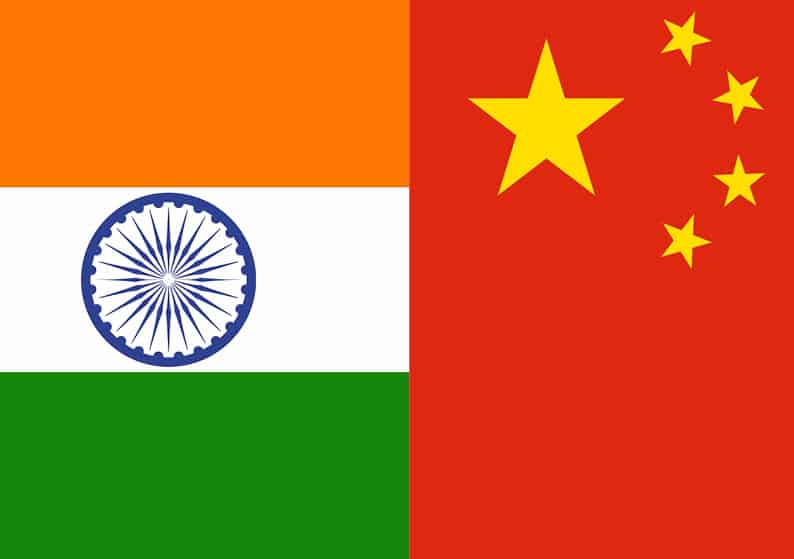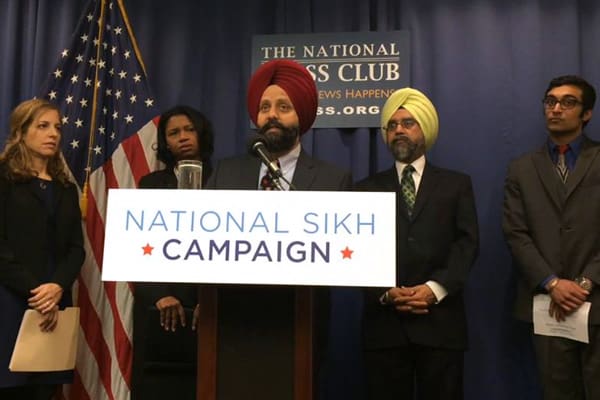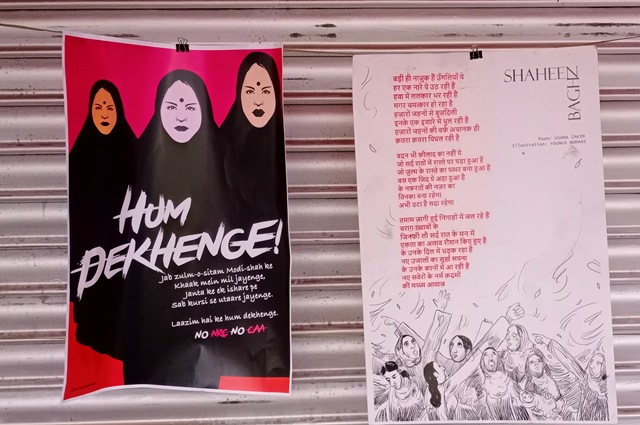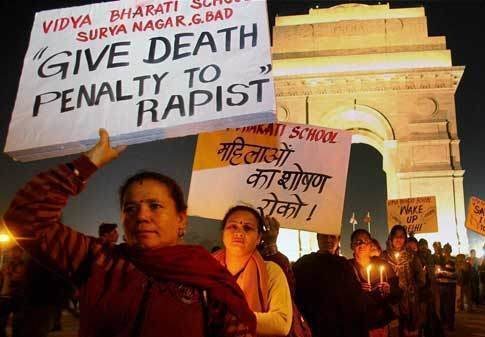Poets and poetry are boundless and eternal. India’s ongoing
turmoil has people, particularly the young, from all classes and communities,
giving vent to their anger and aspirations through words and verses, reviving
some old and long-forgotten, and creating new ones.
Grannies and mothers with babies in arms braving biting cold
have come out in this winter of discontent.
Media last week captured a diminutive Sociology student,
Gayatri Borkar, sitting amidst the protestors at Mumbai’s Gateway of India,
feverishly churning out copies on an old typewriter of poets old and new —
Varun Grover, Nagarjun, Dushyant Kumar and Habib Jaleeb. And Rahat Indori who defiantly
asks: “Kisi ke Baap Ka Hindustan
Thodi Hi Hai? (Is India anyone’s paternal property?)”.
Among them was “Hum
Dekhenge”, the iconic poem of Faiz Ahmed ‘Faiz’. It is doubtful if
this Marathi girl would understand Faiz’s Persianized-Urdu, its words and certainly,
their import. But to judge her and thousands protesting for their ignorance
would be downright unfair.
Restricted to the Urdu-speaking literate classes, Faiz has
returned to India, in a manner of speaking, long after he left for Pakistan and
died in 1986. And long after impact of the ideology he espoused has steeply
declined. But Faiz, like others, is about sentiment, not substance.
This reminds of Subhas Chandra Bose’s “Kadam Kadam Badhaye Ja” of the1940s
and “We shall Overcome” Indianized
as “Hum Honge Kaamyaab” of
the 1970s. Those were different eras in the last century.
Faiz inspired. My interview with him during his last India
visit was actually a non-interview. In the 25 minutes or so that we set across,
he was on telephone for over 22. Barely one question was answered. When the
next visitor came, he waved me off, endearingly: “Oh, yaar kuchhbhi likh dena.” It became a cook-up job.
A “protest poem” against an intolerant military order running
in the name of religion, “Hum Dekhenge” has remained the most popular
poem in Pakistan’s underground society, and for some very good reasons. But do
those reasons apply to the present-day India?
Frequently in exile for protesting oppressive regimes, Faiz
had written it in 1979 against military dictator Ziaul Haq. It was promptly
banned. All copies were destroyed, till on Faiz’s death in 1986, Iqbal Bano,
dressed in a black saree that Zia had outlawed, sang it in a small
auditorium in Lahore. It brought the house down with excitement. The police
seized all recording of this poem save one that was smuggled out of Pakistan
and it is now available on Youtube. It is indeed inspiring.
But
can it be adopted in India? The language is alien to most Indians today.
Then, Faiz is identified with Communism. Although he belonged to both India and
Pakistan, Faiz’s nationality and ideology are anathema to India’s current
ruling classes and large sections of populace they have successfully seduced.
There
is bound to be hostility to Faiz’s invocation of Islamic symbols and imageries.
He was an atheist and his deliberate use of them only infuriated the
conservatives. And conservatives, aggressive and intolerant, are ruling all
across the world today.
These
classes are worried about spread of culture they do not approve of. Saare Jahan Se Achha of Muhammad Iqbal
is arguably third-most popular Indian song, both as a lyric and a martial tune,
after Jana Gana Mana, the national
anthem and Bankim Chandra Chatterjee’s “Vande Maataram”. Indian conservatives, Hindu and Muslim, have
had problems with all three through the long years of the freedom movement and
thereafter.
Hum Dekhenge
comes in more complex times that are less ideological and more
‘pragmatic’. They are more difficult
judging from the way words “Inquilab’
and “Azadi” that were part and parcel
of India’s freedom movement have, ironically, come to mean ‘secession’ and are thus,
“anti-India”.
The
extent to which the current ethos has over-whelmed ideas that have been
inclusive and pluralist is evident from the Indian Institute of Technology,
Kanpur, one of the country’s best institution of higher technological learning,
forming a committee to judge if “Hum Dekhenge”, sung at a campus rally,
has “anti-Indian” content. Elsewhere, the song has been declared
“anti-Hindu.”
Writers-poets
Gulzar and Javed Akhtar have stressed that a song written against Pakistan’s
military junta couldn’t have ‘Indian’ or ‘Hindu’ context. Javed termed the controversy “absurd and
funny”.
The
verse that gave offence was: Jab
arz-e-khuda ke ka’abe se, sab buut uthwaae jaayenge / Hum ahl-e-safa
mardood-e-haram, masnad pe bithaaye jaayenge / Sab taaj uchhale jaayenge, sab
takht giraaye jaayenge/ Bas naam rahega Allah ka… (From the abode of God,
when the idols of falsehood will be removed/ When we, the faithful, who have
been barred from sacred places, will be seated on a high pedestal/ When crowns
will be tossed, when thrones will be brought down, only Allah’s name will remain.)
The
objection was to the word “buut” (idol) which was taken as a reference to idols
of deities that Hindus worship and to Allah and was therefore, a communal
insult. India, it would seem, is not offended by Faiz’s “communalism”, but by his
pluralist message in 2020.
Pakistani
writer Khaled Ahmed laments India’s “decline into religion” when
saner Pakistanis are looking up to an India that they have known and admired
for its all-in socio-political ethos.
This
reminds of Pakistani poetess, late Fehmida Riaz, who chided Indians with her
poem “tum bilkul hum jaise nikle, ab
tak kahan they bhai?” (You turned out to be like us, brother. Where
were you all this while?) Will this
indignation go unrealized, un-responded in India?
This
Pakistani ‘sedition’ is not aimed only at India. A video of students chanting Sarfaroshi ki tamanna at the recent Faiz
International Festival in Lahore is on the Internet. The lines were written by
Ram Prasad Bismil, who fought and died along with Shaheed Bhagat Singh. This is new India. And perhaps, a new Pakistan (not to be
confused with Imran Khan’s Naya Pakistan promise).
Let this be said, whatever be the outcome of the protests over the present government’s two controversial moves — adding to the accumulated angst on many other issues — this combined muse of the old and the new, even if it falls silent for now, shall revive another day.
The writer can be
reached at mahendraved07@gmail.com
